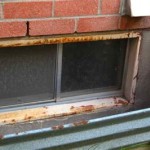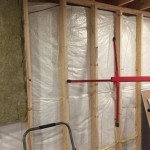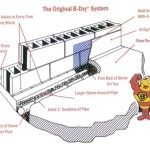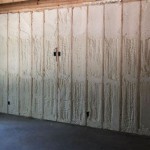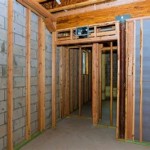Best Insulation for Basement Walls in Ontario
Ontario's winters can be brutal, and a poorly insulated basement can lead to significant energy loss, discomfort, and even potential mold growth. Investing in proper basement wall insulation is crucial for creating a warm, comfortable, and energy-efficient living space. This article will explore the most effective insulation options for basement walls in Ontario, considering the region's unique climate and building regulations.
Understanding Basement Insulation Needs in Ontario
Ontario's climate requires insulation that can withstand freezing temperatures, heavy snowfall, and fluctuating humidity levels. Basement walls are particularly susceptible to water damage and moisture buildup, making it essential to choose a moisture-resistant insulation material. The insulation should also prevent heat loss and help maintain a consistent temperature in the basement, reducing heating costs and improving comfort.
Types of Insulation for Basement Walls
Several insulation materials are commonly used for basement walls, each with its pros and cons. Understanding these options is crucial for selecting the best solution for your specific needs.
1. Fiberglass Insulation
Fiberglass insulation is a popular choice for basement walls due to its affordability and ease of installation. It comes in batts or rolls, making it easy to fit between wall studs or joists. However, fiberglass insulation is not moisture-resistant, so it's crucial to install a vapor barrier on the warm side of the insulation to prevent moisture buildup.
2. Spray Foam Insulation
Spray foam insulation is a high-performance option that offers excellent thermal resistance and air sealing capabilities. It expands to fill gaps and cracks, creating a continuous, airtight barrier that reduces heat loss and drafts. Spray foam is also moisture-resistant, making it ideal for basements prone to moisture problems. However, it's more expensive than other options and requires professional installation.
3. Rigid Foam Insulation
Rigid foam insulation is a durable and moisture-resistant option that is often used as a barrier between the basement wall and the finished interior space. It comes in various thicknesses and can be easily cut to fit the desired space. Rigid foam insulation is excellent for improving energy efficiency and providing a good sound barrier. It is also relatively easy to install, making it a suitable DIY project for homeowners with basic construction skills.
4. Cellulose Insulation
Cellulose insulation is made from recycled paper products, making it an environmentally friendly option. It offers excellent thermal performance and sound absorption, making it suitable for basements used as living spaces. Cellulose insulation is also fire-resistant and can help to control moisture levels. However, it requires experienced installation to ensure proper density and avoid settling.
Factors to Consider When Choosing Insulation
Selecting the appropriate basement wall insulation depends on several factors, including:
1. Budget
Fiberglass insulation is the most affordable option, while spray foam and rigid foam insulation are more expensive. Cellulose insulation falls somewhere in between, providing a balance between affordability and performance. Consider your budget constraints and weigh them against the potential long-term savings on energy costs.
2. Moisture Control
Basements are susceptible to moisture problems, so it's crucial to choose a moisture-resistant insulation material. Spray foam and rigid foam insulation are the most moisture-resistant options, while fiberglass insulation requires a vapor barrier. Cellulose insulation offers some moisture resistance but requires careful installation to prevent moisture buildup.
3. Existing Wall Structure
The condition of your basement walls will influence the best insulation option. If the walls are already framed with studs or joists, fiberglass insulation or cellulose insulation can be easily installed. However, if the walls are unfinished concrete, rigid foam insulation or spray foam insulation might be the best choice.
4. Intended Use of the Basement
The intended use of the basement will determine the level of insulation required. If the basement is to be used as a living space, a higher level of insulation is necessary to ensure comfort and energy efficiency. For a storage area or workshop, a lower level of insulation might suffice.
5. Building Codes and Regulations
Ontario has building codes and regulations that specify minimum insulation requirements for basements. Check with your local building department to ensure the chosen insulation meets the required standards and obtain the necessary permits before beginning any work.
Conclusion
Proper insulation in your basement in Ontario is an investment that will pay off in the long run. By considering your budget, moisture control needs, existing wall structure, intended use, and building codes, you can choose the best insulation option to create a warm, comfortable, and energy-efficient living space in your basement.

Basement Insulation 100 Free Guaranteed Pass Ontario Rebate Program

Insulating Basements Canadian Home Inspection Services

What Is The Minimum R Value For A Basement In Ontario

The Most Effective Method To Insulate Basement Walls In Toronto Energe Solution

How To Insulate A Basement Wall Greenbuildingadvisor

Basement To Beautiful Insulated Wall Panels Ontario Inorganic Installed By Expert Contractors

Best Practices For Insulating Your Basement With Spray Foam Eco Comfort

Inorganic Basement Wall Panels In Toronto Markham Mississauga By Expert Contractors To Beautiful Insulated

How To Insulate Basement With Spray Foam Insulation 2024

Three Ways To Insulate A Basement Wall Greenbuildingadvisor
